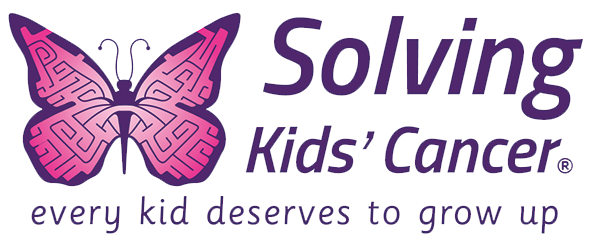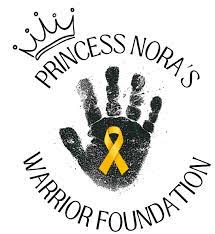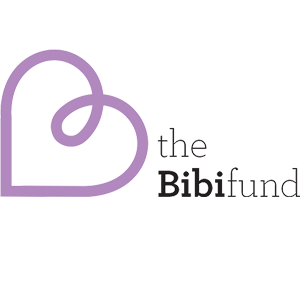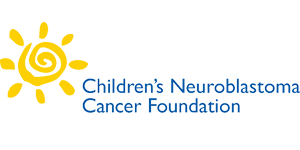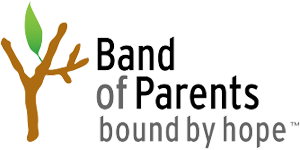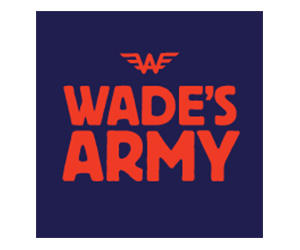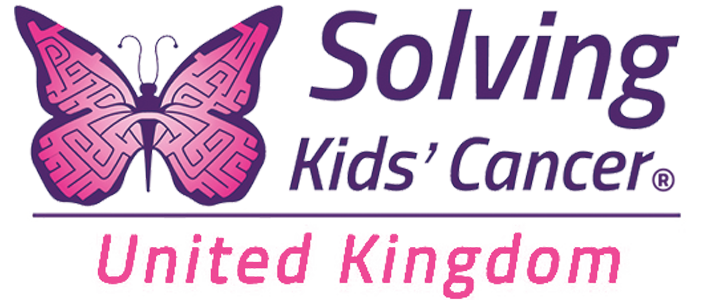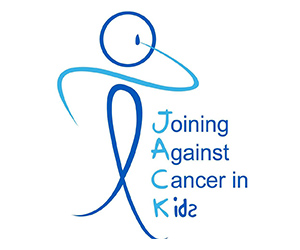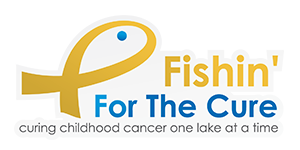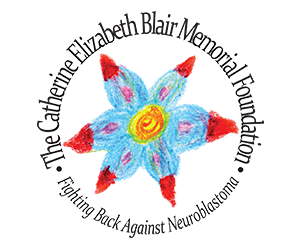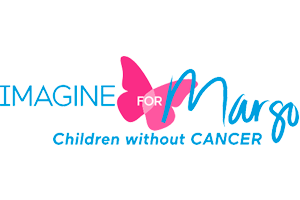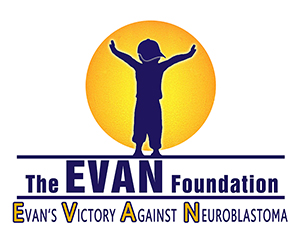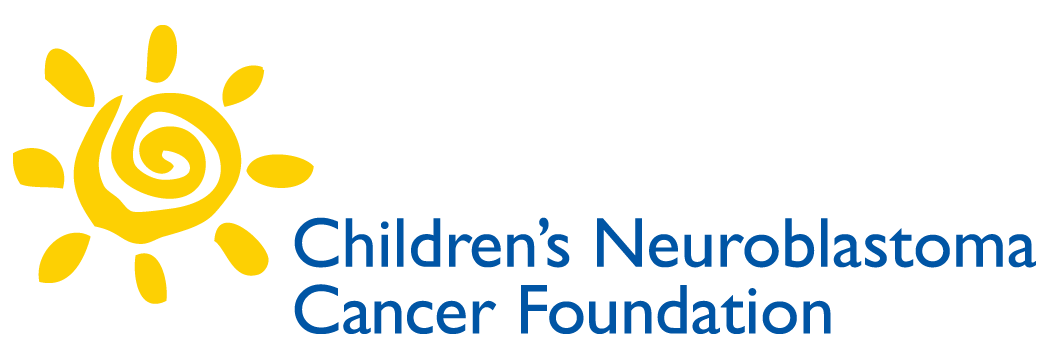SOLVING KIDS' CANCER'S
RESEARCH PORTFOLIO
SKC prioritizes and funds innovative preclinical research and early phase clinical trials with strong rationale for potential benefit to children with poor-prognosis cancers. The SKC approach involves collaborating with key stakeholders including scientists, clinicians, regulatory experts, and industry representatives to accelerate impactful advances globally. The mission-driven work of SKC has been carried out in over 210 cancer centers spanning 24 countries to date. Funded projects include 14 international studies and represent collaborations with 21 different charity partners.
2022 - 2023

Can a Highly Successful Approach in Blood Cancers Translate to Treat Pediatric Brain Tumors?
Project Title: Preclinical testing of anti-GPC2 CAR T cells against ETMR and Medulloblastoma
Researcher: Rosa Nguyen, MD, PhD
Institution: National Cancer Institute
Study Type: Preclinical Study
Summary:
CAR T is a type of treatment in which a patient's T cells (a type of immune system cell) are collected and changed in the laboratory so they will recognize and attack cancer cells. The cells are engineered with an antigen receptor that binds to a protein (in this case GPC2). Large numbers of these CAR T cells are then grown in the lab and given to the patient by infusion after chemotherapy reduces the native T cells. This approach, highly successful in some blood cancers, is now being tested in solid tumors.
The discovery of new targets for pediatric cancers have revealed that embryonal tumors such as ETMR and medulloblastoma express a surface protein antigen called Glypican 2 or GPC2. Recently, researchers at the NCI have developed a GPC2 CAR and this project will fund the testing of this GPC2 CAR on ETMR and medulloblastoma cell lines and in mice. If this project shows efficacy in mice models, the GPC2 CAR will be advanced and tested on children with relapsed or refractory ETMR and medulloblastoma in a clinical trial.
Impact: Results of this preclinical study could lead to a new, promising clinical treatment for pediatric brain tumors that express GPC2.
Charity Partners:

Can We Move the Needle on Survivorship for Kids Who Don't Respond to Standard Frontline Treatments?
Project Title: Solving Indolent Neuroblastoma
Researcher: John Maris, MD
Institution: Children's Hospital of Philadelphia
Study Type: Preclinical Study
Summary:
Indolent neuroblastoma is a sub-type of the disease that shows little or no response to currently available front-line treatments. It is also commonly called refractory disease.
Refractory (indolent) neuroblastoma is resistant to traditional treatments, primarily chemotherapies. There are currently very limited options for children who are newly diagnosed with high-risk neuroblastoma that turns out to be refractory.
The goals of this project are:
- validate a specific and sensitive molecular test in tumors and further develop this test for use with patient blood in order to reliably identify patients with indolent neuroblastoma
- to create and validate robust laboratory models of indolent neuroblastoma
- test combinations of immunotherapy with targeted small molecular therapies in order to rapidly move a completely new therapy to clinical testing
Impact: This pre-clinical research project has real promise to advance to a clinical trial, offering renewed hope of survival for children with tumors that are resistant to standard treatments.
Charity Partners
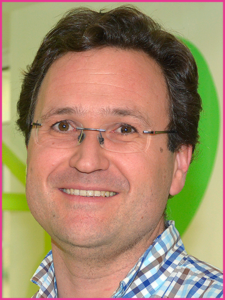
Can we Sidestep Current Frontline Treatments for Children That are Unlikely to Benefit From Them?
Project Title: International Integrated Analysis to Identify Markers of Poor Survival in High-Risk Neuroblastoma
Researcher: Lucas Moreno, MD, PhD
Institution: Hospital Universitari Vall d'Hebron, Barcelona
Study Type: Preclinical Study
Summary: Currently most patients with high-risk neuroblastoma receive the same frontline treatment regardless of their clinical or biological characteristics. Outcomes vary widely in that some progress, are refractory, relapse, or remain disease-free for decades. Researchers will examine robust data sets to identify a constellation of prognostic factors that could better stratify the treatment plans for all high-risk NB children. This study aims to review and analyze all prognostic factors to date and compare these factors to children treated in contemporary clinical trials to validate. If this multi-step project is successfully completed, a subgroup (or subgroups) of patients with particularly poor, or better, outcomes will be identified upfront at the time of diagnosis.
Impact: This will not only provide useful prognostic information for clinicians and families but will place these patients as candidates to access novel drugs at a much earlier time point, without waiting for their disease to relapse or become refractory to treatment.
Charity Partners
2019 - 2021
 Will Transatlantic Cooperation Lead to a New Frontline Treatment for Neuroblastoma Patients?
Will Transatlantic Cooperation Lead to a New Frontline Treatment for Neuroblastoma Patients?
Project Title: Transatlantic Integration Targeting ALK in Neuroblastoma
Researcher: Yael Mossé, MD
Institution: Children's Oncology Group (COG) and European SIOP Neuroblastoma Group (SIOPEN) sites
Study Type: Phase 3 Clinical Trial
Summary: Despite the many hundreds of clinical trials conducted over the past 30 years, very few new drugs have been introduced into frontline therapies for children with cancer. This clinical trial aims to demonstrate the safety and efficacy of the drug Lorlatinib in the treatment of newly diagnosed neuroblastomas involving mutant ALK genes. The Transatlantic Integration Targeting ALK in Neuroblastoma (TITAN) research cooperation is driving the first-ever transatlantic COG-SIOPEN collaboration.
Impact: If approved, Lorlatinib will be the first new drug added to frontline therapy for ALK-mutated neuroblastoma.
Charity Partners
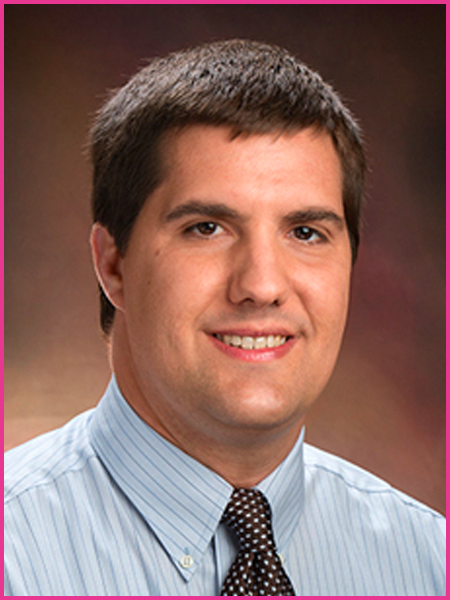
Will a Recently Identified Protein Open the Door to a New Immunotherapy Treatment for Pediatric Cancers?
Project Title: GPC2 Directed Immunotherapies for Neuroblastoma and Other Pediatric Cancers
Researcher: Kris Bosse, MD
Institution: Children’s Hospital of Philadelphia (CHOP)
Study Type: Preclinical
Summary: Immunotherapy is an important area of study for pediatric cancer treatments. While clear advances have been seen for leukemia, the same improvement has not yet been seen in solid tumors. New molecular markers have been identified to target these difficult-to-treat tumors. The protein GPC2 has been found in abundance on neuroblastoma and other tumor types and, importantly, is not present on normal tissue cells. A new CART with GPC2 receptor is being tested in the lab on pediatric cancers. The researchers are also developing a rapid test to determine the level of expression of GPC2 to identify patients that might benefit.
Impact: This work is expected to lead to first-in-human trials for this promising, newly discovered approach which would introduce a new immunotherapy treatment option for neuroblastoma patients as well as for other GPC2 producing pediatric tumors.
Charity Partners

Can a Small Sliver of Tumor Be Used to Quickly Identify the Most Effective Drug Combinations to Treat Brain Tumors?
Project Title: Feasibility of Guided Therapy For Children with Relapsed Brain Tumors Based on Organotypic Slice Culture (OSC) Drug Screening
Researcher(s): Stergios Zacharoulis, MD
Institution: Columbia University Irving Medical Center (CUIMC)
Study Type: Preclinical
Summary: When children with brain tumors suffer a relapse, there are limited options and these children often receive chemotherapy without any method of predicting its effectiveness. In general, chances of a response to chemotherapy at relapse remain less than 30%, meaning it is more likely that these kids will experience the toxic effects of treatment without any benefit. As there are numerous biological and genomic factors that might determine the effectiveness of any given treatment, there is an urgent need to develop rapid, predictive methods to help determine the most optimal therapy for each child. Researchers at Columbia University Medical Center are engaged in a groundbreaking study to determine if, by preserving a brain tumor biopsy in its microenvironment and conducting immediate drug testing on those samples, it can both determine and administer the most beneficial therapy to the patient.
Impact: This study could become a valuable tool in guiding clinical trial enrollment to maximize the chances of clinical response for pediatric brain tumor patients.
Charity Partners

Can New Combinations Be Discovered to Enhance the Efficacy of Agents Against Aggressive Brain Tumors?
Project Title: A Protocol for the Evaluation of α-difluoromethylornithine (DFMO) in Pre-clinical Studies for the Childhood Brain Tumors ETMR and ATRT
Researcher: Aru Narendran, MD, PhD
Institution: Alberta Children’s Hospital
Study Type: Pre-Clinical
Summary: Embryonal tumors with multilayered rosettes (ETMR) and Atypical Teratoid Rhabdoid Tumor (ATRT) are aggressive brain tumors that affect small children and are extremely difficult to cure with currently available therapies. New agents and novel therapeutic approaches are urgently needed to formulate effective new clinical trials to treat these children. The overall aim of this study was to identify additional pathways and mechanisms by which DFMO may induce cytotoxicity and generate complementary antitumor effects in ETMR and ATRT cells.
Impact: This study tested new combinations for effective new treatments for ETMR and ATRT and identified agents that may provide effective synergy to enhance the effectiveness of DFMO based treatments in future clinical trials.
Charity Partners
2016 - 2018

Will Analyzing the Cellular Architecture of a Newly Defined Brain Tumor Reveal Pathways to a Cure?
Project Title: Defining the Cellular Architecture of ETMRs through Large-Scale Single-cell RNA-sequencing Analyses
Researcher: Mariella Filbin, MD, PhD
Institution: Boston Children’s Hospital / Dana-Farber Cancer Institute
Study Type: Pre-Clinical
Summary: ETMRs were only recognized as a distinct brain tumor entity in recent years and since the tumors are clinically highly heterogeneous in terms of location and histology, the disease has not been extensively studied. This study identified the cellular architecture at the single-cell level in patient samples. Using the powerful single-cell sequencing approach to peer into the intricate machinery within individual cells, the research team generated and analyzed data from approximately 6,000 – 8,000 genes per single cell.
Impact: With this exceptionally rich dataset, the research team has identified the underlying pathways and potential targets for the development of effective treatments.
Charity Partners

Can the Use of Modified Measles Virus Be Effective in Treating Children with Brain Tumors?
Project Title: A Phase 1 Study of Modified Measles Virus (MV-NIS) for the Treatment of Children and Young Adults With Recurrent Medulloblastoma or Recurrent Atypical Teratoid Rhabdoid Tumors (AT/RT)
Researcher: Sabine Mueller, MD, PhD
Institution: University of California, San Francisco; Pacific Pediatric Neuro-Oncology Consortium (9 sites)
Study Type: Phase 1 Clinical Trial
Summary: Studies have demonstrated that MV-NIS has an excellent safety profile and ongoing adult studies are currently testing MV-NIS in adult glioblastoma, ovarian cancer, and multiple myeloma. Preclinical studies have shown that treatment with modified measles virus (MV-NIS) leads to prolonged survival in models of recurrent medulloblastoma and ATRT. MV-NIS is thought to work by attaching and fusing to tumor cell membranes. It binds to CD46, a protein that is overexpressed on the surface of many cancer cell types. After fusing to the tumor cells, MV-NIS may induce cell death. This Phase I clinical trial will evaluate the safety and efficacy of MV-NIS, which is administered via injection into the tumor site or subarachnoid space, in treating children and young adults with recurrent medulloblastoma or AT/RT.
Impact: Given the poor prognosis in patients with disseminated disease and the rarity of treatments shown to be efficacious in preclinical models, MV-NIS may prove to be a major step forward in the treatment of medulloblastoma and ATRT. If MV-NIS therapy for children with recurrent medulloblastoma and ATRT appears to be safe and well-tolerated, integrating this therapy into the upfront setting would likely follow.
Read more at https://clinicaltrials.gov/ct2/show/NCT02962167
Charity Partners

Will an Immune-Activating Agent Boost the Body’s Own Defense System to Destroy Cancer Cells?
Project Title: Phase 1 Study of APX-005M CD40 Agonist Antibody in Children with CNS Tumors
Researcher: Ira Dunkel, MD
Institution: Memorial Sloan Kettering Cancer Center (MSKCC)
Study Type: Phase 1 Clinical Trial
Summary: There is an unmet need in pediatric oncology for effective treatments for brain tumors. CD40 is an immune costimulatory receptor essential to the activation of both innate and adaptive immune responses against cancer. This phase I clinical trial is to evaluate the dosage and side effects of APX005M, an investigational immune-activating compound that targets CD40 in pediatric patients with recurrent or refractory brain tumors.
Impact: This study has the potential for significant efficacy in children with recurrent or refractory CNS tumors and also provides a new therapy option for newly diagnosed DIPG patients.
Read more at https://clinicaltrials.gov/ct2/show/NCT03389802
Charity Partners:

Can Nanoparticles Deliver Anti-cancer Agents Directly to the Tumor with More Potency and Less Toxicity?
Project Title: Optimizing SN22 Nanoparticles to Treat Children with High-Risk Neuroblastomas
Researcher: Garrett Brodeur, MD
Institution: Children’s Hospital of Philadelphia (CHOP)
Study Type: Pre-Clinical
Summary: Nanotechnology is a rapidly emerging field with the potential to revolutionize drug delivery, and it is expected to affect every major arena of drug development in the coming years. Advances in this area have allowed some nanomedicines in the market to achieve favorable pharmacokinetic properties, reduce toxicity and improve patient outcomes. To date, there has been very limited application of nanoparticle drugs in children with cancer. This research study developed a new therapy for children with neuroblastoma and other solid tumors and has the potential to impact frontline regimens for children in need of more effective and less toxic therapies.
Impact: This translational research developed a shelf-stable formulation to be introduced into clinical trials for children. Significantly, this same nanoparticle formulation could be used to treat, essentially, any recurrent/refractory solid tumor.
Charity Partners
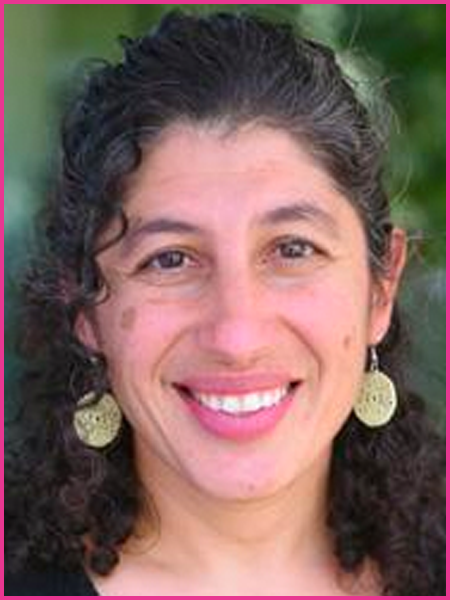
Will a Third-Generation Drug Targeting a Mutation Be More Effective in Fighting Resistant Neuroblastoma?
Project Title: Phase 1/2 study of PF-06463922 (Lorlatinib), an oral small-molecule inhibitor of ALK/ROS1, for patients with ALK-driven relapsed or refractory neuroblastoma
Researcher: Araz Marachelian, MD
Institution: Children's Hospital of Los Angeles, NANT Consortium / Royal Marsden Hospital, London/ Curie Institute, Paris
Study Type: Phase I clinical trial
Summary: In this era of targeted therapies, substantial efforts have been made to identify optimal drugs for specific targets in different types of cancer. The discovery of activating point mutations in the Anaplastic Lymphoma Kinase (ALK) gene as the major cause of hereditary NB, and that these same alterations are the most common mutations in the sporadic forms of the disease now placed neuroblastoma among other cancers which benefit from therapies that block the action of this class of targeted drugs. This clinical trial is testing a third-generation ALK inhibitor, alone and in combination with chemotherapy, in children with relapsed and refractory neuroblastoma with ALK aberrations.
Impact: Accrual goals are being met rapidly with 15 centers in the US and centers in the UK and France. Based on the current results of this study SKC has precipitated an effort to incorporate this drug into frontline therapy for all U.S and European pediatric cancer centers.
Read more at https://clinicaltrials.gov/ct2/show/NCT03107988
Charity Partners
2014 - 2015
 Can Targeted Radiotherapy and a Combination of Antibodies Pack More Punch in Boosting the Immune System to Destroy Cancer Cells?
Can Targeted Radiotherapy and a Combination of Antibodies Pack More Punch in Boosting the Immune System to Destroy Cancer Cells?
Project Title: A Phase I Study of 131-1 mIBG, Nivolumab, and Dinutuximab-beta in Relapsed / Refractory Neuroblastoma (MiNivAn)
Researcher: Juliet Gray, MD
Institution: University Hospital Southampton, University of Wisconsin-Madison, Greifswald, Germany
Study Type: Phase I clinical trial
Summary: This transatlantic clinical study (MiNivAn) combines 131-I mIBG targeted radiation therapy with two different antibodies, nivolumab, and dinutuximab-beta. The radiation first kills neuroblastoma cells and sensitizes the immune system to tumor antigens. Dinutuximab-beta, an anti-GD2 antibody, has been widely used in neuroblastoma and targets the surface marker GD2 to alert the immune system to kill the cancer cells. In contrast, nivolumab turns off the "brakes" in the immune system, boosting the body’s immune response to the cancer. The study aims to prove that when these antibodies are tested in combination with the mIBG therapy there will be a synergistic effect on the cancer, and less toxic than standard approaches.
Impact: This study investigates a combination immunotherapy approach against neuroblastoma, and provides wide access for children in the US, UK, and EU.
Read more at https://clinicaltrials.gov/ct2/show/NCT02914405
Charity Partners

Can the Polio Virus Stop Deadly Brain Tumors?
Project Title: Polio Oncolytic Virotherapy of Pediatric High-Grade Glioma
Researcher: Eric Thompson, MD
Institution: Duke University Medical Center
Study Type: Phase 1 Clinical Trial
Summary: Like a vaccine, an oncolytic virus works by killing tumor cells and initiating a secondary immune response against the cancer. The PVS-RIPO poliovirus was developed at Duke after discovering that numerous cancer cells produce the poliovirus receptor. Unprecedented results in the adult phase I trial demonstrated promising potential for pediatrics and SKC encouraged the research team at Duke to initiate the first pediatric trial. The virus is delivered via a catheter directly into the tumor by a method known as convection-enhanced delivery. This clinical study fills a significant unmet need for children with high-risk brain tumors providing immediate impact for children currently needing new treatment options.
Impact: This study represents the first use of modified oncolytic poliovirus in children with brain tumors and was the first breakthrough designation of an oncolytic virus for brain tumors.
Read more at https://www.clinicaltrials.gov/ct2/show/NCT03043391
Charity Partners


Are Five Targets Better Than One? Using CTLs To Seek and Destroy
Project Title: Administration of TAA- Specific CTL Immunotherapy for Pediatric Solid Tumors
Researcher(s): Ann Leen, MD; Helen Heslop, MD
Institution: Baylor College of Medicine
Study Type: Phase 1 Clinical Trial
Summary: The proteins that the investigators targeted in this study are called tumor-associated antigens (TAAs). These are cell proteins that are specific to the cancer cell, so they either do not show or show up in low quantities on normal human cells. In this study, the investigators targeted five common TAAs called NY-ESO-1, MAGEA4, PRAME, Survivin, and SSX.
TAA Specific CTLs (cytotoxic T lymphocytes) have the potential for significant clinical efficacy for high-risk solid tumors because the multi-target engineering can overcome the problem of antigen escape variants.
Impact: This was an immunotherapy treatment using TAA Specific CTLs for the first-time for children with solid tumors. Significantly, a patient in this study achieved a complete response.
Read more at https://clinicaltrials.gov/ct2/show/NCT02239861
Charity Partners

Can T-Cell Immunotherapy Work in Osteosarcoma and Neuroblastoma?
Project Title: Phase I Activated T Cells Armed With GD2 Bispecific Antibody in Children and Young Adults With Neuroblastoma and Osteosarcoma
Researcher: Maxim Yankelevich, MD
Institutions: Karmanos Cancer Center; Memorial Sloan-Kettering Cancer Center (MSKCC)
Study Type: Phase 1 Clinical Trial
Summary: T cells combined with anti-GD2 antibodies seek and attack GD2, a surface marker found on almost all osteosarcoma and neuroblastoma cells. This trial studied side effects and the most effective dose of activated T cells armed with GD2 bispecific antibody and how well they work in treating patients with neuroblastoma, osteosarcoma, and other GD2-positive solid tumors. The study was conducted at Memorial Sloan-Kettering Cancer Center, the Karmanos Cancer Institute, and the University of Virginia.
Impact: This study provided new information on whether infusions of GD2Bi armed ATC not only kill tumor cells but also "vaccinate" the patients against their own tumor resulting in significant improvement in survival for patients with relapsed GD2+ tumors. This study is now in the Phase II expansion phase.
Read more at https://clinicaltrials.gov/ct2/show/NCT02173093
Charity Partners:

Can Nivolumab Treat Childhood Brain Tumors?
Project Title: Phase 1 Anti-PD1 Nivolumab and Ipilimumab in Children with Brain Tumors
Researcher: Ira Dunkel, MD
Institutions: Memorial Sloan-Kettering Cancer Center (MSKCC)
Study Type: Phase 1 Clinical Trial
Summary: Brain tumors are the leading cause of cancer-related death in children and new effective treatments are desperately needed. Medications such as nivolumab and ipilimumab stimulate a patient’s immune system to fight cancer and are very promising. Results from clinical trials in adults with various tumor types have shown promising results. This study represented the first time nivolumab and ipilimumab were studied in children with brain tumors. The study was amended to expand to 54 hospitals in 15 countries for wide access and rapid accrual.
Impact: This trial was the first time this immunotherapy combination approach was used in children with brain tumors.
Read more at https://clinicaltrials.gov/ct2/show/study/NCT03130959
Charity Partners

Can High-Frequency Ultrasound Be Used for Bulky Tumors?
Project Title: Pilot Study of High-Intensity Focused Ultrasound (HIFU) for Unresectable Neuroblastoma
Researcher: Ted Gerstle, MD
Institution: The Hospital for Sick Children, Toronto
Study Type: Pilot Study
Summary: Solving Kids’ Cancer recognized an unmet need in high-risk neuroblastoma and initiated this study asking researchers to submit new ideas to address challenges in treating unresectable neuroblastoma. This clinical trial sought to use new technology for childhood cancer called "High Intensity Focused Ultrasound-guided by Magnetic Resonance" (MR-HIFU). This next-generation experimental therapy destroys tumor tissue with targeted rapid temperature elevation while leaving adjacent tissue and organs completely unaffected.
Charity Partners
2012 - 2013

Can Genetic Mutations Be Specifically Targeted for Neuroblastoma?
Project Title: NEPENTHE: Next Generation Personalized Neuroblastoma Therapy
Researcher: Yael Mosse, MD
Institution: Children’s Hospital of Philadelphia
Study Type: Phase I clinical trial
Summary: NEPENTHE (Greek for “medicine for sorrow”) – is the first precision medicine trial for children that robustly analyzes the genomics of the cancer and uses combinations of investigational drugs to target specific mutations in the tumors. This study is conducted in two parts. First the tumor is biopsied at the time of relapse and subjected to deep sequencing to identify protocol-specified biomarkers for therapy assignment. Then, if the tumor contains a genetic change defined as being actionable, participants will be assigned to therapy based upon the mutations identified in the tumor biopsy.
Impact: This is the first precision medicine trial for children that analyzes the genomics and epigenomics of cancer and tests combinations of investigational drugs to target specific mutations and alterations in the tumors.
Read more at https://clinicaltrials.gov/ct2/show/NCT02780128
Charity Partners


Can a Child's T-Cells be Engineered to Better Recognize and Kill Neuroblastoma Cells Safely?
Project Title: Phase I Activated T-Cells Transduced With a 3rd Generation GD-2 CAR and iCaspase9 Suicide Safety Switch for Neuroblastoma
Researcher: Andras Heczey, MD
Institution: Baylor College of Medicine
Study Type: Phase I clinical trial
Summary: Immunotherapies have significantly improved survival of children with high-risk neuroblastoma. Additionally, a chimeric antigen receptor (CAR) based therapy using permanently modified T cells has successfully treated leukemia in several children. But for children with solid tumors such as neuroblastoma, CAR-based T cell therapy has not been as effective. Solving Kids’ Cancer supported the pre-clinical work that led to this clinical trial using a CAR T cell therapy approach. This anti-GD2 CAR included a new stimulating factor to enhance proliferation and persistence and a cell suicide gene for safety.
Impact: The study was designed to be flexible resulting in a breakthrough amendment adding a PD1 antibody (checkpoint blockade), which was a first-in-human combination. This study has led to further work to improve CAR-T therapy for neuroblastoma.
Read more at https://clinicaltrials.gov/ct2/show/NCT01822652
Charity Partners

Will a New Drug That Stops Cell Repair Reduce Tumors in Children When Given With Chemotherapy?
Project Title: Phase I/II MK-1775 Wee1 Inhibition + Irinotecan for Neuroblastoma and Medulloblastoma
Researcher: Kristina Cole, MD, PhD
Institution: Children’s Hospital of Philadelphia (CHOP)
Study Type: Phase I clinical trial
Summary: By combining chemotherapy with inhibitors of repair proteins (either CHK1 or Wee1) cancer cells become more sensitive to DNA damage induced by chemotherapy. The Wee1 inhibitor MK-1775 works with irinotecan to stop cell division and cause cell death. In this research project, this combination drug treatment was tested in children with neuroblastoma and medulloblastoma with refractory or relapsed disease, based on a previous preclinical study that was funded by Solving Kids’ Cancer.
Impact: This trial tested a novel combination of agents in relapsed and refractory neuroblastoma and medulloblastoma and showed some activity.
Read more at https://clinicaltrials.gov/ct2/show/NCT02095132

Will an Antibody Recognizing a New Target in Neuroblastoma Kill Tumor Cells?
Project Title: Development of Clinical-grade anti-ALK Antibody for the Treatment of Patients with Neuroblastoma
Researcher: Yael Mosse, MD
Institution: Children’s Hospital of Philadelphia (CHOP)
Study Type: Pre-Clinical
Summary: This promising research was conducted by CHOP physician-scientist Yael Mosse, who discovered a mutation in the ALK (anaplastic lymphoma kinase) gene that occurs in some neuroblastomas. Nearly all neuroblastomas express the ALK protein on the surface of the cell. Researchers believe that an anti-ALK antibody or antibody-drug conjugate that targets the surface antigen will alert the immune system to attack the cancer. An advantage of this target is that it isn’t expressed on nerve fibers like GD2, so the pain will not be associated with an anti-ALK antibody. This research aimed to develop, test, and produce clinical-grade anti-ALK antibody or antibody-drug conjugate for future testing in children.
Impact: This research identified a drug-antibody conjugate targeting ALK expressing neuroblastoma, and led to further work to develop ALK CARs.

Can Chemotherapy Be Delivered to the Brainstem in Children?
Project Title: Pilot Study Intra-Arterial Chemotherapy for the Treatment of Progressive Diffuse Intrinsic Pontine Gliomas
Researcher: Monica Pearl, MD
Institution: John Hopkins University Hospital
Study Type: Phase I clinical trial
Summary: Diffuse intrinsic pontine glioma (DIPG) is a deadly brain tumor located in the brain stem that cannot be surgically removed. This novel delivery-system using a micro-catheter directed chemotherapy into the vertebrobasilar system. This approach targeted the blood supply to the tumor. This delivery method permitted an increased dose of the drug to kill the cancer, while minimizing toxicity in other parts of the body. This approach may provide safe delivery for other agents to the brainstem, as well.
Impact: This novel delivery system was shown to be feasible to direct anti-cancer agents into the brainstem
Read more at https://clinicaltrials.gov/ct2/show/NCT01688401

Can a Vaccine Made From a Child’s Immune Cells Work Against Deadly Brain Tumors?
Project Title: Pilot Study Peptide-based Vaccination for Recurrent Ependymomas
Researcher: Ian F. Pollack, MD
Institution: Children’s Hospital of Pittsburgh
Study Type: Phase I clinical trial
Summary: Solving Kids’ Cancer supported this pilot study, which uses a combination treatment approach of vaccines and drugs to stimulate a child’s immune system. This new treatment targets glioma-associated antigens (GAA), which are over-expressed in ependymomas, making them ideal candidates for the immunotherapy researchers previously developed. This cutting-edge research represented the first immunotherapy trial ever for kids with ependymomas, a deadly brain tumor.
Impact: This low-toxicity trial is a new immunotherapy option for children with ependymoma.
Read more at https://clinicaltrials.gov/ct2/show/NCT01795313

Will Combining NK Cells From a Parent With a Humanized Antibody Be More Effective in Treating Neuroblastoma?
Project Title: Phase I Hu14.18/IL-2 + KIR Ligand Mismatch Natural Killer Cells
Researcher: Kenneth B. DeSantes, MD
Institution: University of Wisconsin – Madison
Study Type: Phase I clinical trial
Summary: Adoptive transfer of haploidentical NK (Natural Killer) cells has shown promise as a treatment option to target and kill cancer cells in a less toxic way than conventional therapies. Scientists use a novel technique to collect, expand, and infuse donor NK cells into a patient in several doses. Solving Kids’ Cancer supported this trial because researchers use a new humanized monoclonal antibody known as hu14.18-IL2, which specifically targets neuroblastoma tumor cells and binds to them. The humanized monoclonal antibody may be more effective at activating the NK cells for killing the cancer cells.
Impact: The trial will provide access to a new immunotherapy treatment option with low toxicity.
Read more at https://clinicaltrials.gov/ct2/show/NCT03209869
Charity Partners
2010 - 2011

Can T-Cells Be Engineered to Attack More Types of Pediatric Solid Tumors?
Project Title: Adoptive Cell Therapy Discovery for Pediatric Solid Tumors
Researcher: Rimas Orentas, PhD
Institution: National Cancer Institute Pediatric Oncology Branch
Study Type: Pre-Clinical
Summary: Adoptive immunotherapy with antibody-based therapy or with T cells transduced to express chimeric antigen receptors (CARs) is useful to the extent that the cell surface membrane protein being targeted is not expressed on normal tissues. The researchers created an algorithm that defines the combinations of antigens to analyze the best targets in solid tumors. The unique application of our bioinformatics processing pipeline and statistical tools allowed the researchers to identify several new targets as a pair, and propose a promising new strategy to attack antigens. Targeting these markers together is expected to increase the specificity and thereby the safety of CAR-based cell therapy.
Impact: This preclinical project was completed quickly and resulted in the discovery of new targets for cellular therapy in pediatric tumors.

Can We Improve the Potency and Persistence of a Child’s T-Cells to Recognize and Kill Neuroblastoma Cells?
Project Title: Improving GD2 T cell Immunotherapy for Patients With Neuroblastoma
Researcher: Chrystal Louis, MD
Institution: Baylor College of Medicine
Study Type: Pre-Clinical
Summary: In order to find new treatment strategies for children with relapsed or refractory neuroblastoma, scientists created T cell receptors, called chimeric antigen receptors (CARs), for the GD2 antigen, which is expressed by neuroblastoma tumor cells. Researchers expected that the anti-tumor effects of the T cells could be improved by making the cells expand and persist better. Solving Kids’ Cancer supported this work to develop a new and improved type of GD2-CAR T cells, and this work has advanced to a phase 1 clinical trial also supported by Solving Kids’ Cancer.
Impact: The development and validation work was completed quickly, met the stated goals and led to a new clinical trial.

Will a Vaccine Made of Stem Cells Be Effective Against a Deadly Brain Tumor in Children?
Project Title: Pilot Study of Imiquimod and Tumor Lysate Vaccine Immunotherapy for Diffuse Intrinsic Pontine Glioma (DIPG) in Children and Young Adults
Researcher: Christopher L. Moertel, MD
Institution: University of Minnesota
Study Type: Phase I clinical trial
Summary: Diffuse intrinsic pontine glioma (DIPG) is a deadly brain tumor that cannot be surgically removed, and radiation only delays the tumor growth by a few months at best. The vaccine was combined with the drug imiquimod, which enhances the response of the immune system to attack and kill cancer cells.
Read more at https://clinicaltrials.gov/ct2/show/NCT01400672

Can We Train a Child’s Immune Cells to Recognize and Kill Cancer Cells?
Project Title: Phase I Combining Decitabine and Vaccine Therapy for Patients With Relapsed Neuroblastoma and Sarcoma
Researcher: Kenneth Lucas, MD
Institution: Kosair Hospital, Louisville KY
Study Type: Phase I clinical trial
Summary: In this study, blood was collected from the children and immune cells called dendritic cells were isolated and exposed to CT (cancer testes) antigens. This “primed” the immune system to kill cells with those targets when reinfused into the patient in multiple doses. The cancer drug decitabine has also been used to make the expression of the markers (CT antigens) more pronounced on the cancer cells so that the immune cells can better recognize and kill the tumor cells.
Impact: The first child treated had a complete response (published in the journal Pediatrics in January 2013) and there were three other positive responses from children with neuroblastoma. The adaptive-designed trial allowed amendments to improve the study, including lymphodepletion and an immune adjuvant.
Read more at https://clinicaltrials.gov/ct2/show/NCT01241162
Charity Partners:

Will Targeted Radiation Stop a Deadly Brain Tumor?
Project Title: Phase I Image-guided Convection-enhanced Delivery of 124I-8H9 Monoclonal Antibody for Diffuse Intrinsic Pontine Glioma in Children
Researcher: Mark M. Souweidane, MD
Institution: Memorial Sloan Kettering Cancer Center (MSKCC)
Study Type: Phase I clinical trial
Summary: Diffuse intrinsic pontine glioma (DIPG) is a brain tumor located in the brain stem, which cannot be surgically removed. Radiation only delays the tumor growth by a few months at best. Better methods to deliver treatments to the brainstem are urgently needed. In this research study, children with DIPG were treated with an antibody connected to a radioactive isotope delivered directly to the tumor in the brain stem through a novel process called “convection-enhanced delivery using a small catheter.
Impact: This trial accrued well and most children did not show progression while on the study. At the higher dose levels, a better response trend was seen, and one child has been stable for more than 3 years.
Read more at https://clinicaltrials.gov/ct2/show/NCT01502917

Can We Kill Cancer Cells Using a New Drug That Stops DNA Repair?
Project Title: CHK1 Inhibition as Therapeutic Strategy for Children with Neuroblastoma and Medulloblastoma
Researcher: Kristina Cole, MD, PhD
Institution: Children’s Hospital of Philadelphia (CHOP)
Study Type: Pre-Clinical
Summary: Drugs that disrupt the function of CHK1, called CHK1 inhibitors, are able to sensitize cancer cells to chemotherapy and radiation. These are currently being used in clinical trials for other cancers and so Solving Kids’ Cancer supported this research project to test CHK1 inhibitors in neuroblastoma and medulloblastoma.
Impact: Evidence from this preclinical work provided the rationale for a COG Phase I/II clinical trial to open in 2014.

What Drugs Will Target Cancer Stem Cells?
Project Title: Preclinical Drug Development Program for Neuroblastoma Stem Cells
Researcher: David Kaplan, PhD
Institution: The Hospital for Sick Children, Toronto
Study Type: Pre-Clinical
Summary: Researchers were able to successfully isolate populations of neuroblastoma cells with the properties of cancer stem cells. These cells (called tumor-initiating cells or TICs) can grow tumors in mice by injecting as few as 10 cells, whereas other cell lines typically require injecting tens of thousands of cancer cells to cause a tumor to grow in mice. The goal of this project is to identify good targets and drug candidates to best kill these cells. Several new drugs are currently under evaluation for potential use against neuroblastoma TICs in future clinical trials.
Impact: The results of the study were published in the February 2011 issue of Cancer Research and confirmed that the PI3K1 target identified and supports the rationale for further research using these agents in children with neuroblastoma.
Charity Partner: The James Fund

By Engineering a Herpes Virus, Can We Target Tumor Cells?
Project Title: Dose Escalation Study of Intratumoral Herpes Simplex Virus-1 Mutant HSV1716 Oncolytic Virus in Patients With non-CNS Solid Tumors
Researcher: Timothy Cripe, MD, PhD
Institution: Cincinnati Children’s Hospital Medical Center
Study Type: Phase I clinical trial
Summary: HSV1716 (Seprehvir) is a "first in class" engineered oncolytic virus derived from the herpes simplex virus, and is designed to target and destroy cancer cells. More than 70 adult cancer patients (brain cancer, head/neck carcinoma, melanoma) in Europe have received HSV1716, where it proved beneficial in early phase trials. Solving Kids’ Cancer brought this cutting-edge research to the U.S. and developed the first clinical trial for children in 2010.
Impact: Although none of the patients had objective responses, the evidence of virus replication and inflammatory reactions we observed in pediatric patients with cancer following intratumoral injection of HSV1716 is promising, and further research in combination is ongoing.
Read more at https://clinicaltrials.gov/ct2/show/NCT00931931
2008 - 2009

Project Title: Phase I Vinblastine and Sirolimus in Pediatric Patients With Recurrent or Refractory Solid Tumors Including CNS Tumors
Researcher: Sylvain Baruchel, MD
Institution: Hospital for Sick Children, Toronto
Study Type: Phase I clinical trial
Summary: Researchers identified one drug that was very effective in killing neuroblastoma cells. The drug is called Sirolimus, also known as rapamycin, and is currently approved for preventing rejection in patients with organ transplants. This work led to the first use of this drug in children with solid tumors. In this phase 1 clinical trial, children received both rapamycin and another cancer drug known as vinblastine because the two drugs combined were shown to be even more effective against pediatric tumors.
Impact: The results were published in the January 2014 issue of Pediatric Blood Cancer and showed a partial response in one patient and stable disease in three children. The result of this study led other researchers to investigate the next generation of these inhibitors in other clinical trials.
Read more at https://clinicaltrials.gov/ct2/show/NCT01135563

Which Onco Virus is Most Effective at Killing Neuroblastoma Cancer Cells?
Project Title: Preclinical Oncolytic Virus Development Program for Neuroblastoma
Researcher: Dave Stojdl, Ph.D.
Institution: Children’s Hospital of Eastern Ontario Research Institute
Study Type: Pre-Clinical
Summary: Solving Kids’ Cancer developed a novel program to harness cutting-edge technology to identify promising viruses to kill cancer cells. In this project, researchers screened a variety of wild-type rhabdoviruses and found that a modified virus known as Maraba MG1 was the most effective in killing neuroblastoma. Maraba MG1 was tested in 11 neuroblastoma cell lines grown from patients, including isolated neuroblastoma cancer stem cells (tumor-initiating cells), which were identified by a previous research project by Solving Kids’ Cancer.
Impact: A virus known as the Maraba virus was identified as the most likely to be effective in treating neuroblastoma.

Can a Transplant Using Parent's Stem Cells Followed by a Parent's NK Cells Help Fight Cancer in a Child?
Project Title: Reduced Intensity Haploidentical Transplantation With NK Cell Infusion for Pediatric Acute Leukemia and High Risk Solid Tumors
Researcher: Kenneth DeSantes, MD
Institution: University of Wisconsin - Madison
Study Type: Phase I clinical trial
Summary: Haploidentical transplant, which uses donor bone marrow from a parent, has been successful in curing some cancers, including leukemia. Solving Kids’ Cancer supported this clinical trial based on prior research showing that patients had better survival and a lower relapse risk if the parent’s natural killer (NK) cells were activated in the patient’s system. In this trial, additional NK cells from the donor are given to the child after the stem cell transplant.
Impact: This was one of the first studies to use haploidentical stem cell transplants in the United States, and one patient had a durable response. This is an important development as the approach has shown some success in sustained remissions after relapse in children treated in Germany.
Read more at https://clinicaltrials.gov/ct2/show/NCT00582816
Charity Partner: Magic Water

Can a Modified Smallpox Virus Kill Cancer Cells?
Project Title: Phase I Vaccinia Virus JX-594 for Relapsed/Refractory Neuroblastoma and Other Pediatric Solid Tumors
Researcher: Timothy Cripe, MD, PhD
Institution: Cincinnati Children’s Hospital, Texas Children’s Hospital
Study Type: Phase I clinical trial
Summary: Solving Kids’ Cancer initiated and funded the first trial in children using JX-594, a virus strain derived from the same vaccine used to eradicate smallpox, for treating children with solid tumors. JX-594 had been previously tested in adult cancer clinical trials showing benefit, including in those whose cancers are resistant to other therapies. Researchers believe that oncolytic viruses like JX-594 will be an important component in combination with other immunotherapies to put patients into durable remission.
Impact: One of the children experienced a reduction in tumor size and showed increased immune system activity as a result of the virus. The study results were published in Molecular Therapy in March 2015.
Read more at https://clinicaltrials.gov/ct2/show/NCT01169584
Charity Partners:

By Finding Weaknesses in Cancer Stem Cells, Can We Prevent Relapse?
Project Title: Preclinical Neuroblastoma Drug Discovery and Development Program
Researcher: David Kaplan, PhD
Institution: Hospital for Sick Children
Study Type: Pre-Clinical
Summary: Researchers at the Hospital for Sick Children in Toronto were among the first to identify and characterize neuroblastoma cancer stem cells, which are believed to be responsible for relapse. Researchers isolated these unique cancer cells from patients and screened hundreds of drugs against them. The best drug candidates were tested in animal models with tumors derived from the same cells and the most promising agents to come out of these studies were proposed for testing in children. As a result, a drug called rapamycin (sirolimus) was selected for a phase 1 clinical trial at many cancer centers in North America.
Impact: An agent was identified as having activity against neuroblastoma stem cells and a clinical trial studying this agent followed this preclinical work.

Can a Drug for Another Disease be Used Against Neuroblastoma and Brain Tumors?
Project Title: Phase II Nifurtimox for Refractory Neuroblastoma or Medulloblastoma
Researcher: Giselle Sholler, MD
Institution: Van Andel Institute
Study Type: Phase II clinical trial
Summary: After the successful completion of the phase I trial, which determined both the safety and correct dosage of Nifurtimox with a combination of drugs, Solving Kids’ Cancer launched a phase II trial to test Nifurtimox in more children with neuroblastoma, which also included children with medulloblastoma, a deadly type of brain tumor.
Impact: This trial introduced a novel agent in combination with chemotherapy to treat relapsed and refractory neuroblastoma.
Read more at https://clinicaltrials.gov/ct2/show/NCT00601003

Can a Drug For Another Disease Be Used Against Neuroblastoma?
Project Title: Nifurtimox for Refractory or Relapsed Neuroblastoma or Medulloblastoma
Researcher: Giselle Sholler, MD
Institution: University of Vermont / Vermont Cancer Center
Study Type: Phase I clinical trial
Summary: Drugs used for another disease are occasionally found to work against cancer, and sometimes this discovery happens by accident. This was the case with Nifurtimox, a drug used to treat a parasitic disease. One of the co-founders of Solving Kids’ Cancer read a case study about Nifurtimox being used to treat a child with Chagas disease, which also showed a dramatic reduction in that child’s chemo-resistant neuroblastoma. As a result, Solving Kids’ Cancer quickly brought researchers together and created a clinical trial using Nifurtimox as a therapeutic option for children with neuroblastoma.
Impact: The trial accrued rapidly, and the results were published in the January 2011 issue of the Journal of Pediatric Hematology Oncology. A multi-center phase 2 study was launched as a result.
Read more at https://clinicaltrials.gov/ct2/show/NCT00486564
